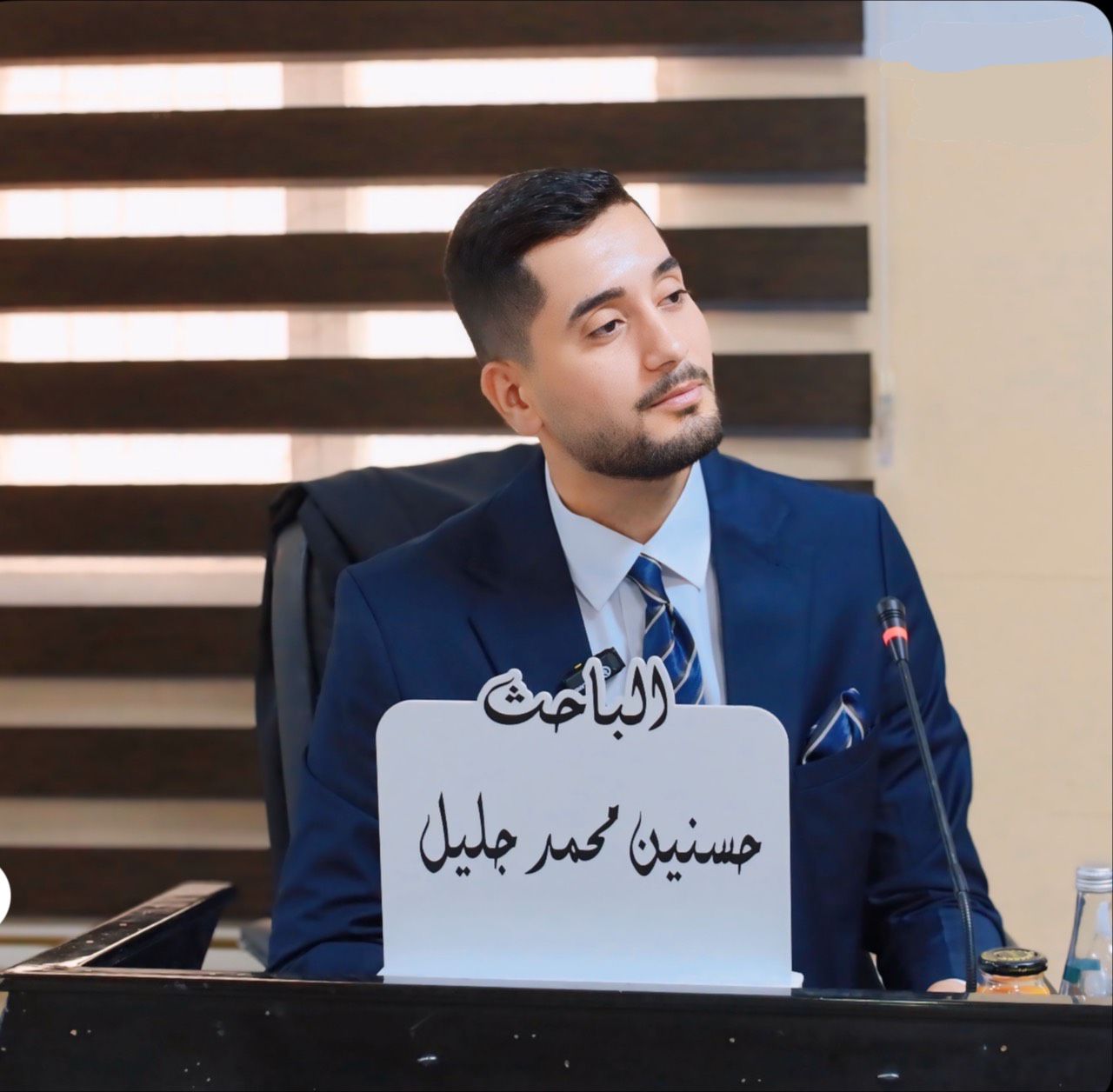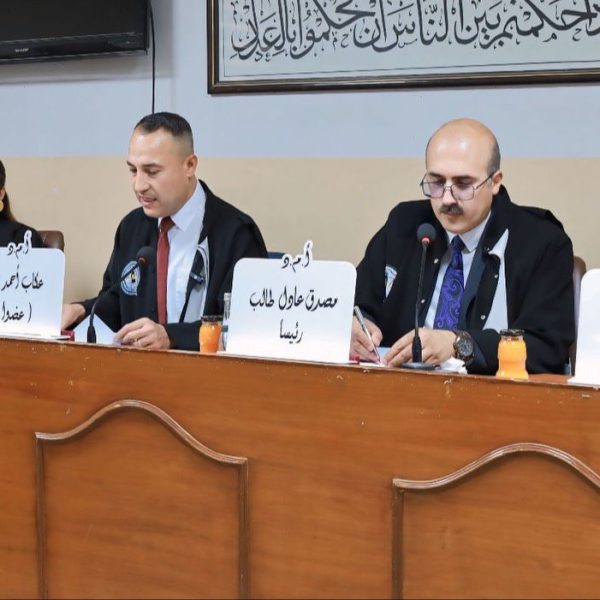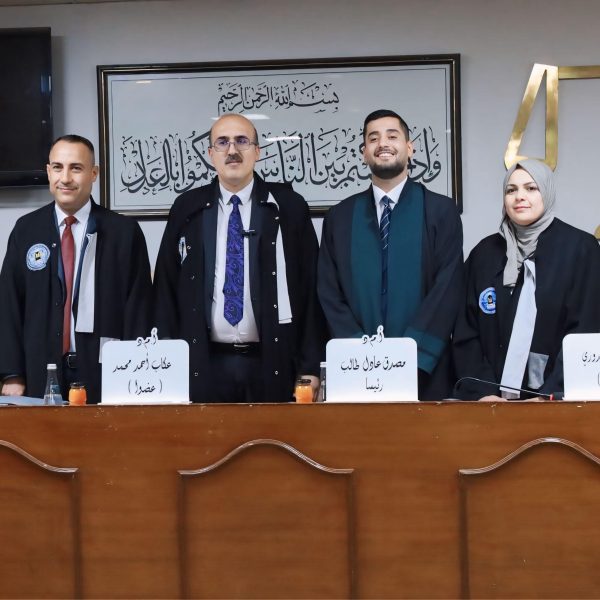The College of Law at the University of Baghdad held a discussion for a Master’s thesis titled: “The Authority of the Supreme Federal Court to Suspend the Implementation of Laws – A Comparative Study”, by Hassanain Mohammed Jalil, in the Public Law Department, on Wednesday, May 28, 2025, in the Model Courtroom at the College.
The examination committee consisted of:
-
Prof. Dr. Musadaq Adel Talib – Chairman
-
Asst. Prof. Dr. Okab Ahmed Mohammed – Member
-
Asst. Prof. Dr. Taghreed Mohammed Qaddouri – Member
-
Asst. Prof. Dr. Sara Harith Abdul Kareem – Member and Supervisor
The thesis aimed to clarify the concept of suspending the implementation of laws within the framework of constitutional adjudication, by highlighting the legal uniqueness of this mechanism through an explanation of its scope, conditions, procedures, and the binding effect of the decisions issued. The study also sought to demonstrate the features of a distinct legal system for suspending laws challenged on constitutional grounds before constitutional courts, taking into account the special nature of constitutional litigation and avoiding the direct application of ordinary procedural laws in this context.
The thesis was structured into three chapters:
-
Chapter One: The Concept of Suspending the Implementation of Laws
-
Chapter Two: The Characteristics, Forms, Conditions, and Legal Force of Suspension Decisions
-
Chapter Three: Judicial Trends in Suspending the Implementation of Laws in Iraq, Egypt, and Germany
The thesis concluded with several important recommendations, most notably:
-
Calling on the Iraqi legislature to amend the Supreme Federal Court Law by adding a specific legal provision that clearly and precisely defines the Court’s authority to suspend the implementation of laws.
-
Recommending that the Iraqi legislature follow the German model regarding the determination of a time limit for suspending the implementation of a legislative provision challenged for unconstitutionality—setting a maximum period of six months, extendable once, to avoid prolonged suspensions that could harm the rights of other parties and the public interest.
-
Urging the Iraqi constitutional judiciary to decide on suspension requests expeditiously by establishing a reasonable timeframe for reviewing and ruling on such motions.




